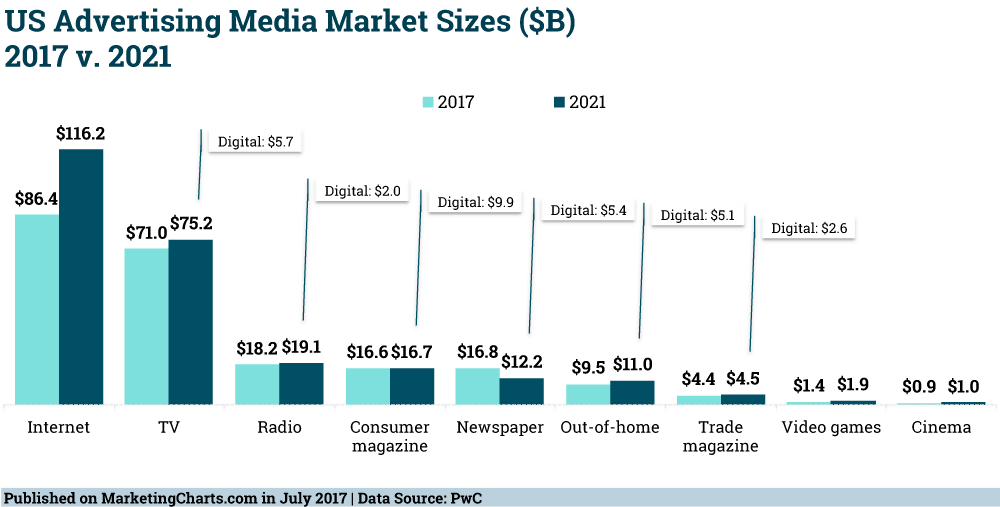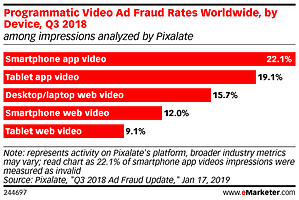Internet marketing has become a big part of our lives, and today, companies invest massive amounts in digital ads. And why not, businesses can interact with target audiences in real time and engage with them, respectively. Businesses often outsource their internet marketing campaigns to digital ad agencies, incurring large sums of investment. With the stakes being so high, the phenomenon of ad verification becomes a necessity. There are many ad networks available in the market.

That is indeed a sizeable expected advertising market share of the internet by 2021. So, it becomes an undisputed fact that businesses have to invest well in digital marketing ads. However, one crucial question arises.
Can investors be confident that their ads are being displayed correctly on the right channels and actually viewed by the specified target audience?
Not always.
Ad fraud is a problem associated with the automated nature of internet marketing. Ironically, many businesses and investors are not aware of ad fraud and can fall victim to this discrepancy.

This 2019 Ad Fraud report from eMarketer depicts the fraud rates across several devices and it once again confirms the need for ad verification.
Contents
What is Ad Verification?
Internet fraudsters use various hacks to fake ad traffic due to which a large number of ads are never seen by the target audience. Ad verification is a process by which stakeholders can check whether their ads are being displayed correctly, in the right websites, in the correct area of the website, and viewed by the right people. For this, ad verification companies use a special kind of technology – proxy servers.
Recommended: Working Kickass Proxy & KAT Unblocked Mirror Torrent Sites List
What is a Proxy Server?
A proxy server is a type of server that acts as an intermediary between the user and the content (in this case, ads) on the internet. You send requests to the proxy server and the proxy server, in turn, forwards your request to the website. The proxy browser then forwards the responses from the website, back to you. This is done by a method known as web scraping. This is the act of harvesting or extracting data from websites.
How does a proxy server work?
As the proxy server acts as a middleman between the browser and the website, it can change your IP address. This is done so that the web server which you connect to is unable to identify your location. So, if your aim is to change your location or appear ‘hidden’, you need an anonymous proxy that does not reveal your IP.
Every proxy server has a unique IP (Internet Protocol) address. A proxy server that is placed in a specific country, enables advertisers to verify geotargeted ads by making sure that they are properly displayed in selected regions. Ad verification companies use this ability of proxy servers to identify and check whether ads are being correctly displayed in other contexts too.
Free and paid proxies
A simple web search will open the option of numerous free and paid proxies for many locations. However, you should know that free proxies can be slow and unreliable and could divulge important information to 3rd parties. Paid proxies, on the other hand, are reliable, stable and also come with support. Furthermore, you can state your specific needs and get proxies that best fit your goal. Paid proxy servers are always recommended for web scraping purposes. Free proxies can lead to loss of data during extraction and hence should not be used. Most of the web scraping software have the provision of setting up proxy addresses.
Ad Verification – A discussion
Ad verification companies mainly benefit two groups of people:
- Advertisers: As discussed, ad verification technology is beneficial to the advertisers as it ensures that the ads are displayed as per the content and demographic parameters, thus protecting and leveraging the valuable digital campaign investments to their full potential.
- Publishers: Ad verification is a great means to reduce ad fraud and preserve the reputation of publishers who genuinely work to promote the advertiser’s ads. Publishers also have a better control of ads being displayed on their website. They can avoid the display of undesirable content like malicious ads, illegal and adult ads on their website, with the help of ad verification technology.
Wrap-up
About 60% of all ad display investments are lost to ad frauds (source)
Businesses have undoubtedly gained huge revenues by marketing and transacting on the web. But digital ad fraud still seems to be harsh reality and needs to be checked before it spreads its roots deeper. Setting up proxy servers for ad verification is a robust move which more and more businesses, advertisers and publishers should embrace to safeguard their internet ad campaigns.
